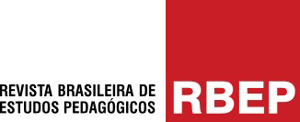Abstract:
This article investigates the social representations (SR) of ninth-graders about studying, based on the theoretical background of SR in its structural approach and on the contributions offered by Psychology and Genetic Epistemology. Data collection was carried out with the use of questionnaire (N=213), in which students were asked to react to the prompting term "studying is" and justify the listed expression as the most important. The evocations were analyzed with the aid of the software Evoc, and the justifications, through content analysis. Results revealed that students present an ambivalent representation of studying, which is sometimes seen positively, as something important for the future; but at other times it is seen negatively, characterized as boring and tiring. The Prova Brasil performance results, either good or bad, are associated with time dedicated to studying, studying habits and school and family control over studying. In both situations, heteronomous attitudes and hegemonic representations about studying were identified, so that Prova Brasil performance does not translate into higher autonomy in the studies nor a more positive comprehension of it.
Keywords:
social representations; studying autonomy; studying habits; Prova Brasil

 Thumbnail
Thumbnail
 Fonte: elaboração própria
Fonte: elaboração própria

